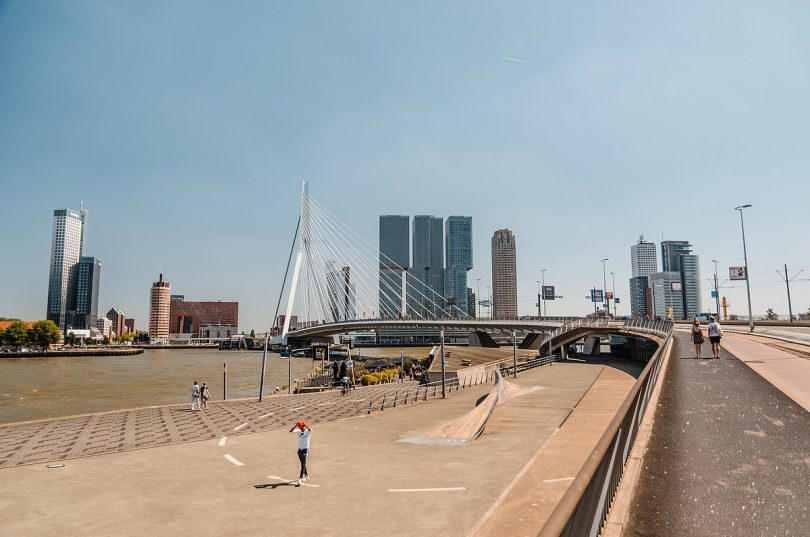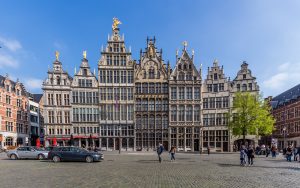Multimodality is set to play a crucial role in the future of many European cities. By encouraging users to combine different travel modes and reducing reliance on cars, it can relieve congestion, reduce noise and air pollution, and generally improve quality of life. An article on Mobility as a Service (MaaS) and the CIVITAS Initiative, edited by Richard Adams, ICLEI Europe.
When using the various forms of transport that they need in their daily lives, people can struggle with the multiple payment and ticketing processes and apps involved. Indeed, taking and switching between various transport modes and finding relevant information can be overwhelming when confronted with multiple options and sources.
Mobility as a Service (MaaS) offers a potential integrated solution to these complex user needs. MaaS applications offer users access to various travel options via a single platform, such as trams, bikes, trains, buses, shared cars, and scooters. It also combines these to present users with a single, seamless journey that incorporates real-time information, reliable planning and considers different payment possibilities.
Still in its infancy, it is assuming different forms around Europe. This is illustrated by the cities of Antwerp (Belgium) and Turku (Finland) and the island of Elba (Italy). Aided by their participation in three Living Lab projects under the CIVITAS Initiative, they are experimenting to find suitable models.
Antwerp – creating a marketplace for MaaS
Author: Katia Kishchenko, City of Antwerp
In Antwerp, MaaS has the potential to help alleviate major pressure on the city’s (road) infrastructure. This is causing a challenging mobility situation that is impacting negatively on the city’s liveability and appeal to tourists and businesses.
With the support of the CIVITAS PORTIS project, Antwerp is creating the building blocks for the successful establishment of a MaaS marketplace in the city. This falls under the “Smart Ways to Antwerp” (SWtA) project, whose development forms a major part of Antwerp’s CIVITAS PORTIS work.
SWtA is developing various measures and tools to instigate a shift towards sustainable modes, change user mobility patterns, and improve travel times – both for passenger transport and urban freight. Through this, it enables and inspires people to choose alternative mobility solutions where possible and facilitates multimodality.
Soon after SWtA began, it became clear that people are not always aware of the range of mobility solutions available or cannot find the information to make use of them. The need for a multimodal travel planner was obvious.
After several market consultations, it turned out that no truly multimodal travel planner was available that supported the city of Antwerp’s goals. A new travel planner was developed together with Be-Mobile, a market leader in smart mobility. This brings together the different transport modes offered within Antwerp based on various user scenarios.
Possible journeys combining cars, public transport, park and rides, shared bikes and walking are identified and presented to the end user through the website and dedicated app. Roadworks and traffic diversions are also shown.
The next step in the app’s development will be to allow users to set preferences. For example, people will be able to filter journey options according to mode. Through this, the planner will offer more personalised route planning.
Whilst sound travel advice is crucial to changing users’ mobility habits, the proper and appropriate mobility solutions must also be in place. To ensure this, SWtA has set up its Marketplace for Mobility.
The Marketplace brings together a wide selection of providers who each support the city to reach its mobility goals. Through project calls and active communication and cooperation with employers, employees and entrepreneurs, the Marketplace is encouraging the development of innovative solutions, such as MaaS.
In combination with existing mobility players and MaaS experts, the city of Antwerp is building up its knowledge related to standardisation, reporting, technical requirements, and the user experience. Together, this information is creating a picture of what the end user really requires and how to best address their needs.
It has become clear that for MaaS services in Antwerp to be efficient and successful, further collaboration the city between the different players and is necessary. In January 2019, the city of Antwerp launched a MaaS-specific project call, whilst it will continue to nurture the MaaS ecosystem within the city.






